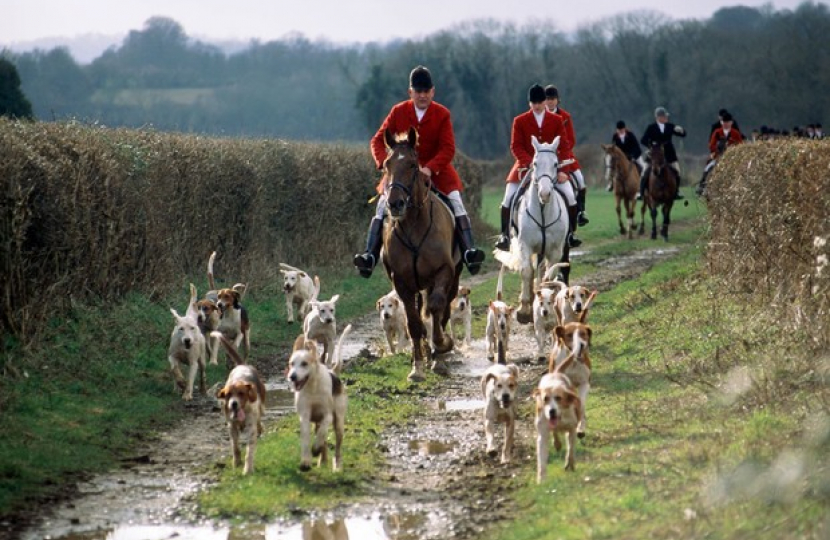
My esteemed predecessor, Sir David Amess, was one of the first and strongest voices to call for the ban of fox hunting. At a time when many Members were not in favour of banning fox hunts, Sir David pushed on and galvanised support behind the cause of the ban, and his cause succeeded. I am proud to carry on Sir David’s legacy in fighting for animal welfare. I am an animal lover, and a proud patron of the Conservative Animal Welfare Foundation. Recently, my Private Members Bill has passed to Committee stage, and hopefully will pass through both Houses in swift order. This Bill will criminalise pet abduction as a specific offence, and will make sure our beloved pets are kept where they belong – with their loving owners.
The Hunting Act 2004 makes it an offence to hunt a wild mammal with dogs, except where it is carried out in accordance with the exemptions in the Act. Those found guilty under the law are subject to its full force. The investigation and prosecution of all criminal offences, including consideration of whether an actual offence has been committed, is a matter for the police and Crown Prosecution Service, who have comprehensive powers to take action under criminal law. The Government was elected on a manifesto which committed to not amending the Hunting Act.
Since the introduction of the Hunting Act 2004, many hunts have turned to trail hunting as an alternative to live quarry hunting. This involves a pack of hounds following an artificially laid, animal-based scent so does not involve a hunt for a live fox, and therefore is not banned. For an offence to be committed it is necessary to prove that a wild animal is being hunted intentionally. If proven, this can lead to a prosecution and an unlimited fine. I recognise it is possible that dogs used for trail hunting may on occasion pick up and follow the scent of live foxes during a trail hunt. If that occurs, it is the responsibility of the huntsmen and women and other members of hunt staff to control their hounds and, if necessary, stop the hounds as soon as they are made aware that the hounds are no longer following the trail that has been laid.
I understand that issuing a licence or giving permission for trail hunting is an operational matter for the landowner, and the Department for Environment, Food and Rural Affairs does not play a central role in this. It is up to each Local Authority and landowner to decide whether trail hunting can take place on public land within its jurisdiction. Likewise, it is up to an individual public body or private individual to decide what activity takes place on their land.
Considering this, if any constituent believes that an offence has taken place during the course of a hunt, including during a trail hunt, they should make a report to their local police force.
